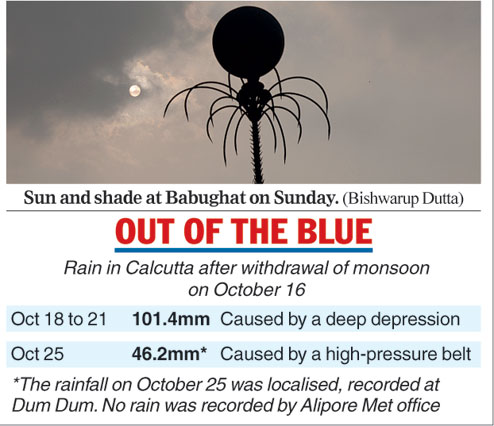
Calcutta: Sewage pipes are often clogged by plastic bags and garbage thrown into drains, causing the waste water level to rise and seep into the water pipeline where there is a leak, an engineer of the Calcutta Municipal Corporation (CMC) has said.
Tests conducted by the School of Tropical Medicine have confirmed the presence of coliform bacteria in municipal water, indicating faecal contamination in at least one sample collected from Baghajatin, the epicentre of the diarrhoea outbreak in several wards of south Calcutta since last week.
"The water and sewage pipelines run parallel to each other. But the waste water level is usually lower than that of drinking water except for times when the water pressure is high," the engineer of the CMC's water supply department explained.
But plastic accumulated inside the sewer line often blocks the flow of waste water. "When the waste water level inside the manhole rises above the nearest drinking water line, the waste water starts spilling from the manhole through pores in the brick walls," the engineer said.
Detecting such leaks is tougher as the water moves sideways and does not reach the surface.
Such leaks cam be detected only if the manhole cover is opened at regular intervals and the inside checked. But a civic official admitted that such stringent checks are not carried out unless there is an emergency.
CMC engineers have discovered several leaks in the underground pipelines over the past week. "After the diarrhoea outbreak was reported last Friday (February 9) evening, our engineers checked several manholes for leaks," said the engineer.
Nearly 40 such leaks have been repaired in the areas affected by the diarrhoea outbreak, sources in the civic body said.
"We are trying to ascertain whether clogged manholes could have led to the problem," said a CMC official.
Another way to know if there is a leak is when the road gets wet even if water is not gushing out from below. Such leaks are easier to spot and more often repaired.
The CMC's water supply department usually gets alerts about wet roads from councillors or local residents. An engineer said plugging leaks is routine work that engineers of the CMC's water supply department are expected to carry out.
Metro reported on Sunday that tests conducted at the School of Tropical Medicine showed that the most probable number (MPN) of coliform bacteria found in the water sample was more than 10, which meant it was contaminated. MPN is a method of testing the condition of drinking water in terms of the presence of bacteria.











